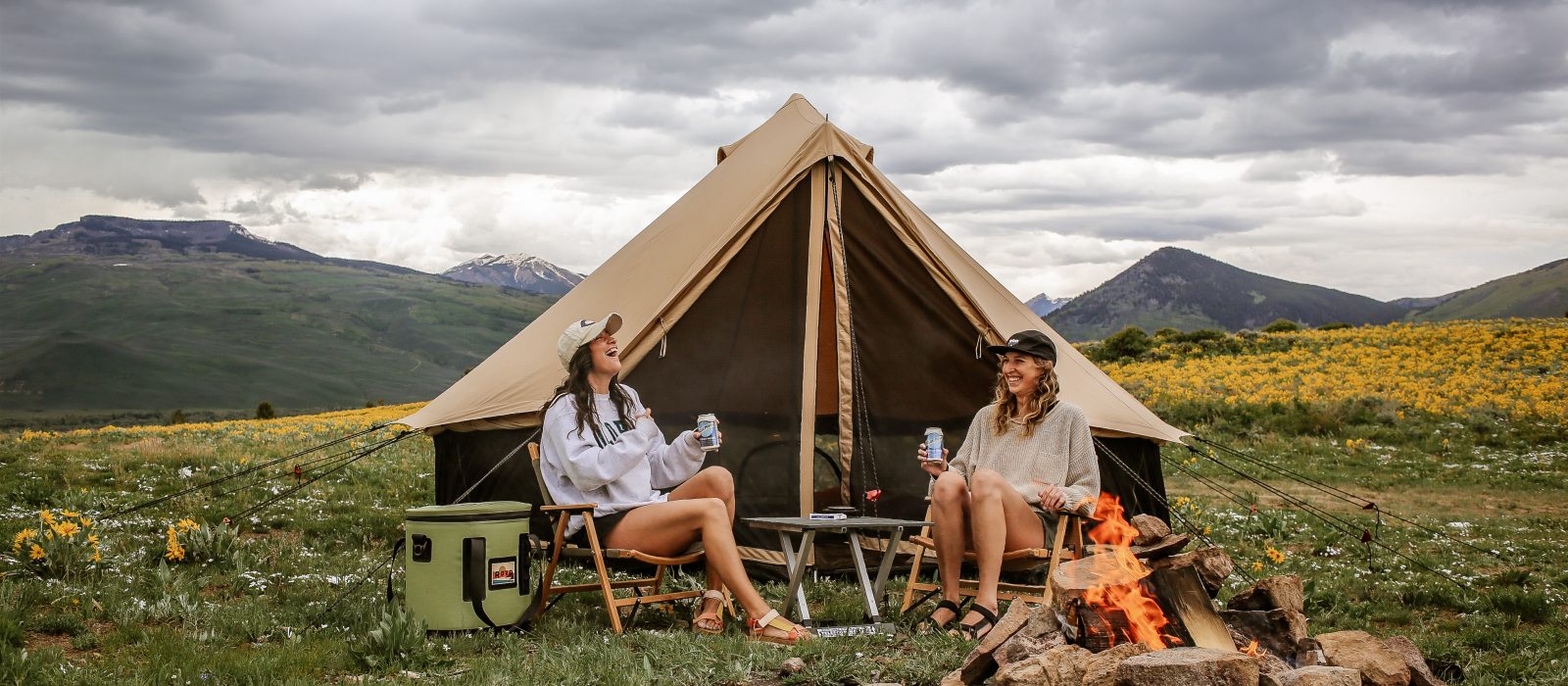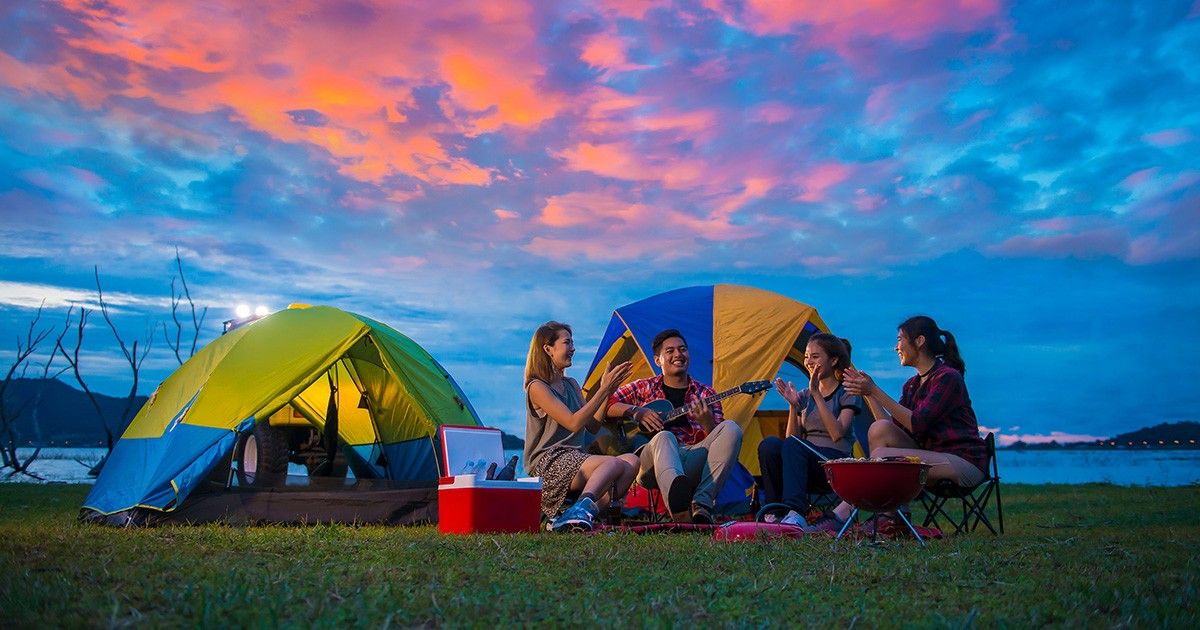Camping is one of the most rewarding ways to reconnect with nature, bond with friends or family, and escape the hustle of daily life. Whether you’re a seasoned outdoor enthusiast or a first-time camper, proper preparation is the key to a safe, enjoyable, and stress-free adventure. There’s nothing quite like the thrill of sleeping under the stars, but without the right planning, your dream trip can quickly turn into a nightmare.
Before you pack your bags and head out into the wilderness, there are several crucial things to note before going camping. From choosing the right campsite and packing essential gear to understanding safety protocols and respecting nature, every detail matters. In this comprehensive guide, we’ll walk you through everything you need to know to ensure your camping trip is both fun and safe. Let’s dive in and get you ready for your next outdoor escapade!
Essential Things to Note Before Going Camping

1. Choosing the Right Campsite
Selecting the perfect campsite is the foundation of a successful camping trip. Consider the following factors:
- Location: Proximity to home, accessibility, and the type of environment (forest, mountain, lakeside, etc.).
- Amenities: Availability of restrooms, potable water, fire pits, and picnic tables.
- Regulations: Check if permits or reservations are required.
- Weather: Research the typical weather conditions for the area and season.
- Wildlife: Be aware of local wildlife and any necessary precautions.
Comparison Table: Public vs. Private Campsites
| Feature | Public Campsites | Private Campsites |
|---|---|---|
| Cost | Usually cheaper | Often more expensive |
| Amenities | Basic to moderate | Often more luxurious |
| Privacy | Less private | More private |
| Reservation | Sometimes required | Usually required |
| Accessibility | Varies | Generally easier |
2. Packing the Right Gear
Packing the right camping gear is crucial for comfort and safety. Here’s a checklist of essentials:
Shelter & Sleeping
- Tent (with stakes and guylines)
- Sleeping bag (appropriate for season)
- Sleeping pad or air mattress
- Pillow
Cooking & Food
- Portable stove or grill
- Fuel and lighter/matches
- Cookware (pots, pans, utensils)
- Food and snacks (non-perishable preferred)
- Cooler with ice packs
- Water bottles or hydration system
- Biodegradable soap and sponge
Clothing
- Weather-appropriate clothing (layers)
- Rain gear
- Hat and gloves (if cold)
- Extra socks and underwear
- Sturdy hiking boots or shoes
Safety & Navigation
- First aid kit
- Map and compass/GPS
- Flashlight or headlamp (with extra batteries)
- Multi-tool or knife
- Whistle
Miscellaneous
- Insect repellent
- Sunscreen
- Trash bags (Leave No Trace)
- Camp chairs
- Personal hygiene items (toothbrush, wipes, etc.)
3. Planning Your Meals
Meal planning is often overlooked but can make or break your camping experience. Consider:
- Prep at Home: Chop vegetables, marinate meats, and pre-cook meals if possible.
- Simple Recipes: Opt for easy-to-cook meals such as sandwiches, pasta, or foil packet dinners.
- Snacks: Bring plenty of high-energy snacks like trail mix, granola bars, and fruit.
- Food Storage: Store food in sealed containers to prevent attracting wildlife.
4. Understanding Safety Protocols
Safety should always be a top priority. Here’s what you need to know:
Fire Safety
- Use designated fire rings or pits.
- Keep water and a shovel nearby to extinguish fires.
- Never leave a fire unattended.
- Follow local fire regulations and bans.
Wildlife Safety
- Store food and scented items in bear-proof containers or hang them from a tree.
- Never feed wildlife.
- Keep a safe distance from all animals.
Personal Safety
- Share your itinerary with someone at home.
- Know the nearest hospital or ranger station.
- Carry a fully charged phone and a portable charger.
- Be aware of your surroundings and weather changes.
5. Respecting Nature and Leave No Trace Principles
Camping is about enjoying nature, so it’s vital to minimize your impact. Follow the Leave No Trace principles:
- Plan Ahead and Prepare: Know the rules and regulations.
- Travel and Camp on Durable Surfaces: Stick to established trails and campsites.
- Dispose of Waste Properly: Pack out all trash, leftover food, and litter.
- Leave What You Find: Don’t pick plants or disturb wildlife.
- Minimize Campfire Impact: Use a camp stove when possible.
- Respect Wildlife: Observe from a distance.
- Be Considerate of Other Visitors: Keep noise down and respect privacy.
6. Checking the Weather
Always check the weather forecast before your trip. Sudden weather changes can impact your safety and comfort. Pack accordingly and be prepared for rain, wind, or cold temperatures, even if the forecast looks clear.
7. Health and Hygiene
Maintaining personal hygiene in the outdoors can be challenging but is essential for your well-being.
- Use biodegradable soap for washing dishes and yourself.
- Bring hand sanitizer and wipes.
- Pack a small trowel for digging a “cat hole” if restrooms are unavailable (follow local guidelines for waste disposal).
8. Emergency Preparedness
Prepare for the unexpected:
- Know basic first aid and CPR.
- Carry a whistle and signal mirror.
- Have an emergency contact plan.
- Bring extra food, water, and clothing.
9. Activities and Entertainment
Plan activities to make your camping trip memorable:
- Hiking, fishing, swimming, or kayaking
- Board games or cards
- Stargazing
- Nature photography
10. Special Considerations for Families and Pets
If you’re camping with children or pets, take extra precautions:
- Choose family-friendly campsites.
- Bring familiar toys or comfort items.
- Keep pets leashed and bring their food, water, and bedding.
- Teach kids about outdoor safety and boundaries.
FAQ: Things to Note Before Going Camping

What are the most important things to bring on a camping trip?
The essentials include shelter (tent, sleeping bag), food and water, cooking supplies, weather-appropriate clothing, first aid kit, navigation tools, and safety items like a flashlight and whistle.
How do I choose a good campsite?
Look for level ground, proximity to water (but not too close), shade, and access to amenities. Avoid low-lying areas that may flood and check for hazards like dead trees.
What should I do if I encounter wildlife?
Stay calm, keep your distance, and never feed animals. Store food securely and follow local guidelines for wildlife encounters.
How can I stay safe while camping?
Inform someone of your plans, carry a first aid kit, check the weather, and follow fire and wildlife safety protocols.
What are Leave No Trace principles?
Leave No Trace is a set of guidelines to minimize your impact on nature, including proper waste disposal, respecting wildlife, and leaving natural objects undisturbed.
Can I camp during bad weather?
It’s possible, but you must be well-prepared with waterproof gear, extra clothing, and knowledge of how to stay safe in storms or extreme temperatures.
How do I keep my food safe from animals?
Store food in bear-proof containers, hang it from a tree if necessary, and never leave food unattended.
Is camping suitable for beginners?
Absolutely! Start with established campsites, keep your first trip short, and follow basic safety and preparation tips.
Conclusion
Camping is a wonderful way to experience the great outdoors, but preparation is crucial for a safe and enjoyable trip. By understanding the things to note before going camping—such as choosing the right campsite, packing essential gear, respecting nature, and prioritizing safety—you can ensure your adventure is memorable for all the right reasons.
Remember to plan ahead, pack smart, and always follow Leave No Trace principles. Whether you’re camping solo, with friends, or bringing the whole family (including pets!), these tips will help you make the most of your time in nature.
Final Recommendation:
Take the time to research, plan, and prepare for your camping trip. The more effort you put in before you leave, the more you’ll be able to relax and enjoy the beauty of the outdoors. Happy camping!